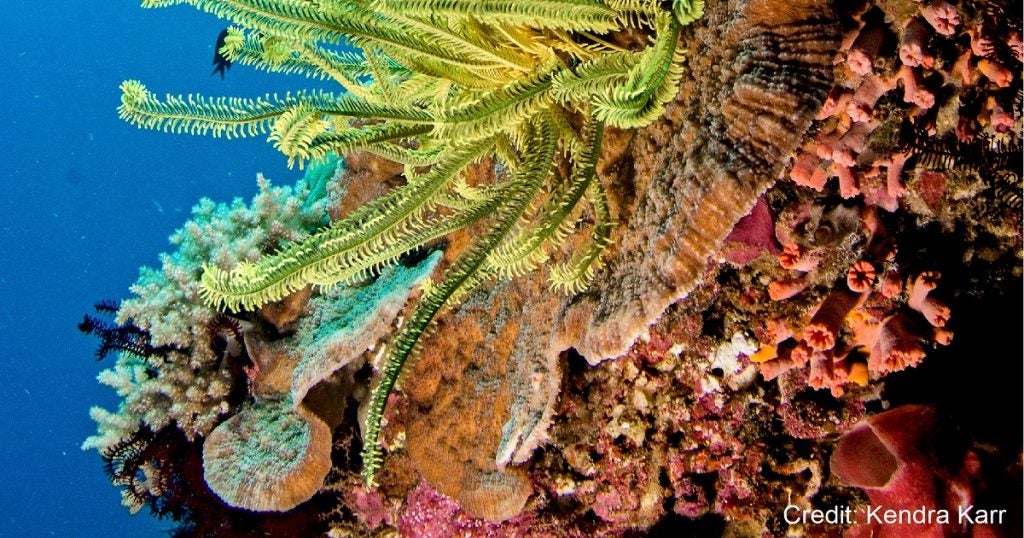 Editor’s note: This is the sixth in a multi-part blog series, Fisheries for the Future, examining the impacts from climate change on global fisheries and the opportunities to address these emerging challenges. Throughout the series, we’ll be investigating how climate change will impact the world’s supply and distribution of fish and what we can do to ensure the most sustainable future for ourselves and our planet. Learn more about this work: Resilient Seas
Editor’s note: This is the sixth in a multi-part blog series, Fisheries for the Future, examining the impacts from climate change on global fisheries and the opportunities to address these emerging challenges. Throughout the series, we’ll be investigating how climate change will impact the world’s supply and distribution of fish and what we can do to ensure the most sustainable future for ourselves and our planet. Learn more about this work: Resilient Seas
Coral reefs are highly vulnerable to climate change and are already experiencing mass coral bleaching and die-off events worldwide. It’s no secret that coral reefs need our help. Recent estimates indicate that half of the Great Barrier Reef was decimated by bleaching events in 2016 and 2017. This trend is alarming on many levels. Coral reefs are a hotbed of biodiversity and abundance, and coral reef fisheries are critically important to the livelihood and food security concerns of millions of people — many of whom live in developing countries. Read More










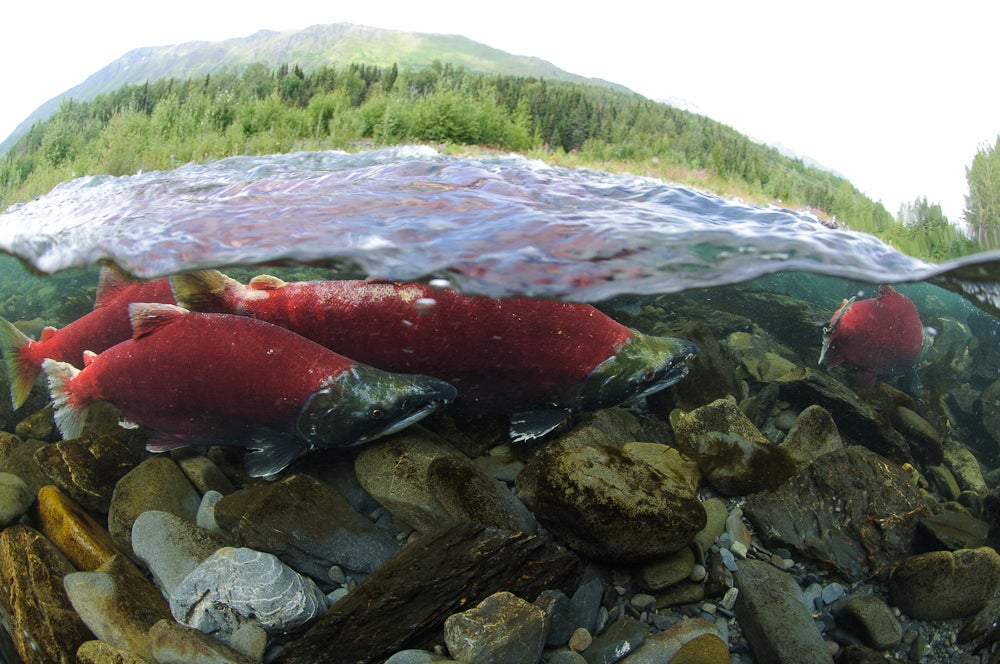 By Rod Fujita and Merrick Burden
By Rod Fujita and Merrick Burden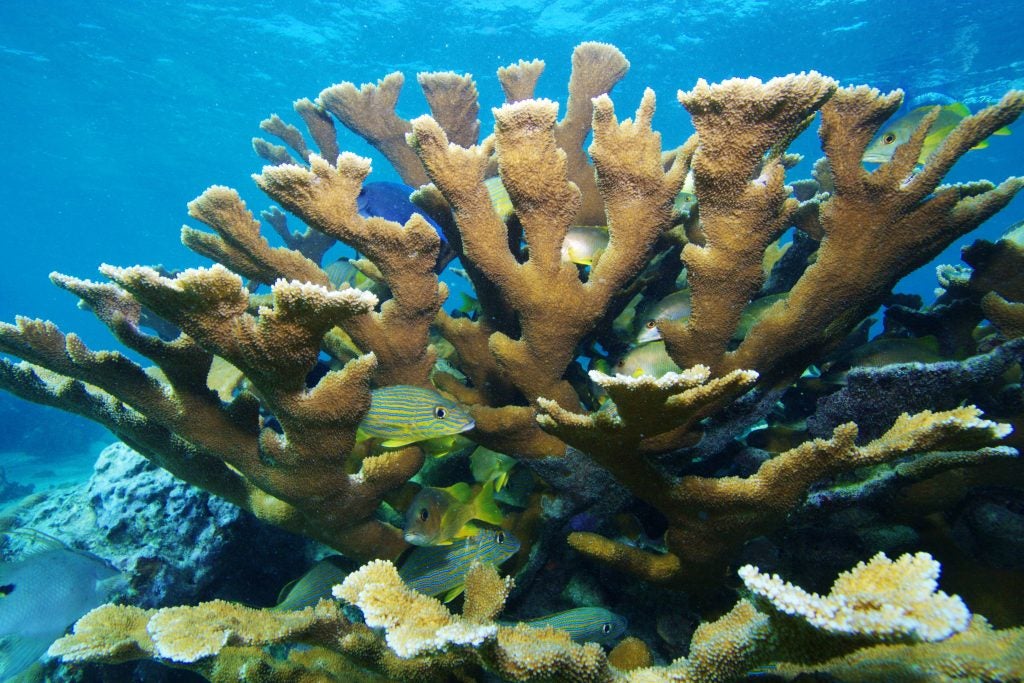 Nearly three years ago, I broke with conventional wisdom to note that there was ample
Nearly three years ago, I broke with conventional wisdom to note that there was ample 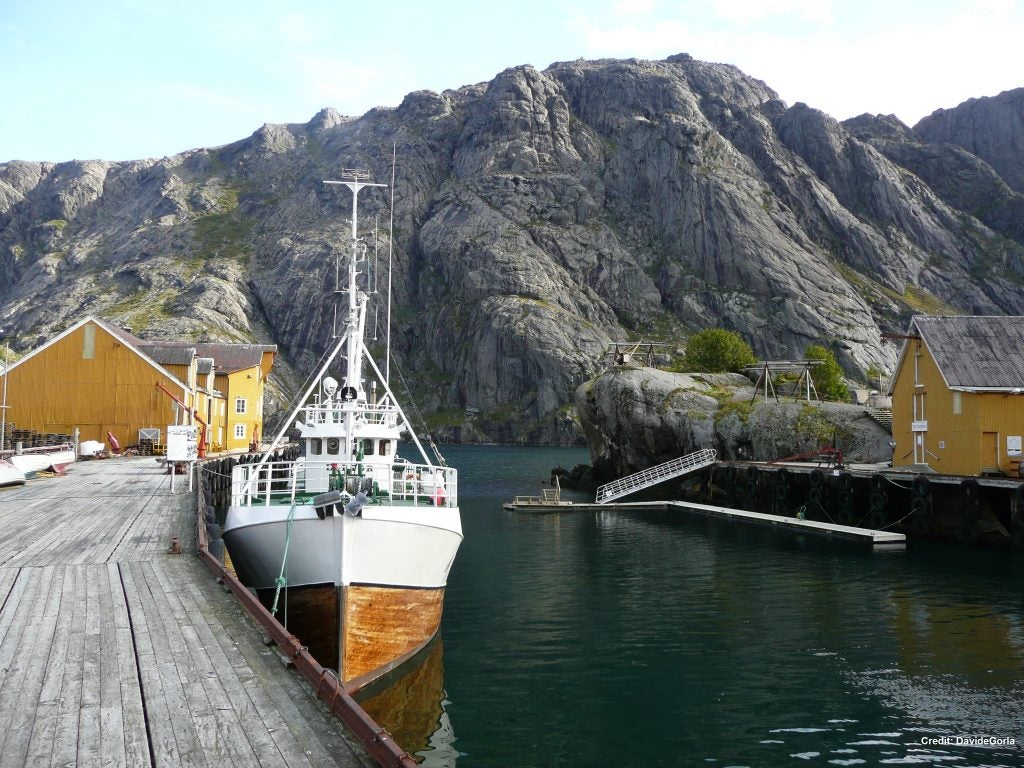
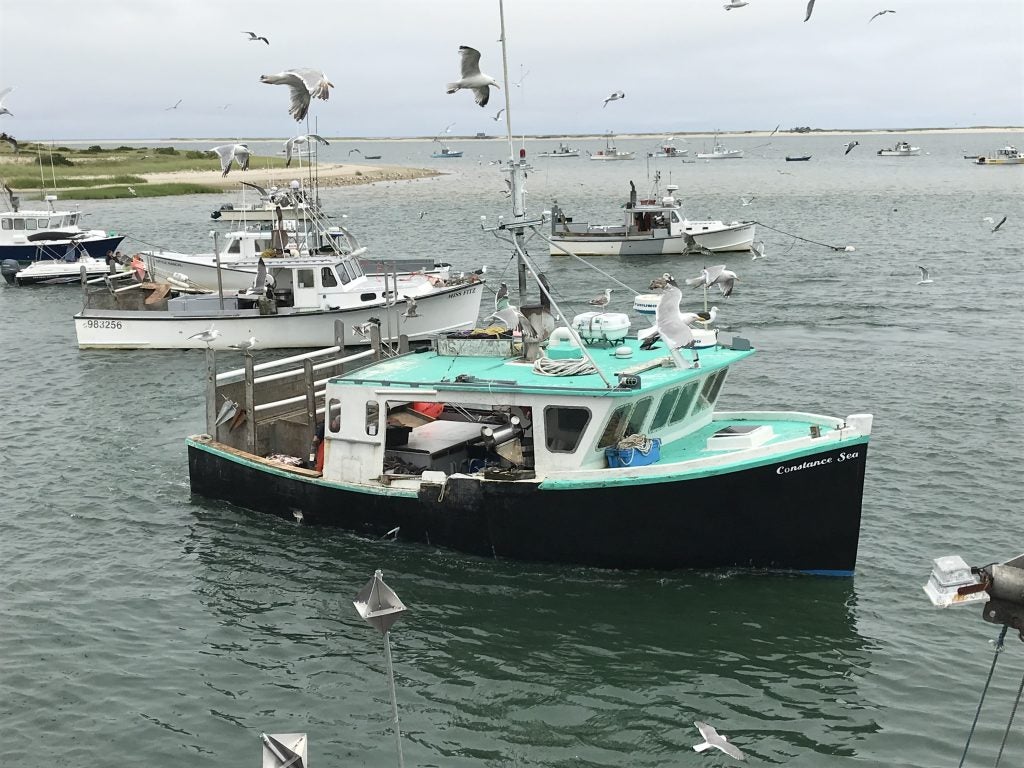 Editor’s note: This is the third in a multi-part blog series, Fisheries for the Future, examining the impacts from climate change on global fisheries and the opportunities to address these emerging challenges. Throughout the series, we’ll be investigating how climate change will impact the world’s supply and distribution of fish and what we can do to ensure the most sustainable future for ourselves and our planet. Learn more about this work:
Editor’s note: This is the third in a multi-part blog series, Fisheries for the Future, examining the impacts from climate change on global fisheries and the opportunities to address these emerging challenges. Throughout the series, we’ll be investigating how climate change will impact the world’s supply and distribution of fish and what we can do to ensure the most sustainable future for ourselves and our planet. Learn more about this work: 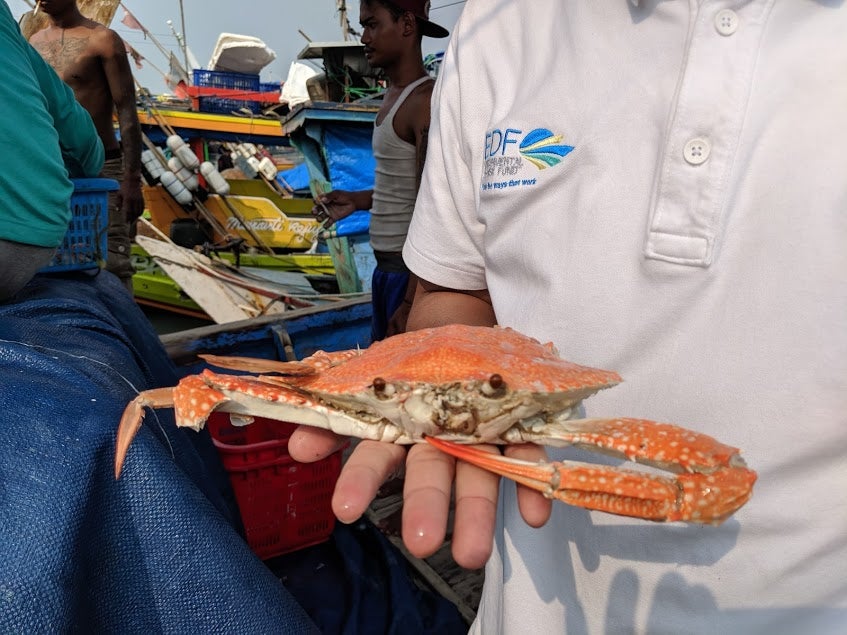 If you’ve enjoyed a delicious crab cake at a restaurant in the U.S. recently, you might be surprised to learn that the crab you were eating had a pretty long trip to your plate. That’s because there’s a high chance it was made with blue swimming crab imported from tropical countries such as Thailand, Vietnam or Indonesia. But while crab in the U.S. is well regulated and is mostly sustainable, little is known about whether current fishing practices are sustainable over the long term for crabs in Asia.
If you’ve enjoyed a delicious crab cake at a restaurant in the U.S. recently, you might be surprised to learn that the crab you were eating had a pretty long trip to your plate. That’s because there’s a high chance it was made with blue swimming crab imported from tropical countries such as Thailand, Vietnam or Indonesia. But while crab in the U.S. is well regulated and is mostly sustainable, little is known about whether current fishing practices are sustainable over the long term for crabs in Asia.